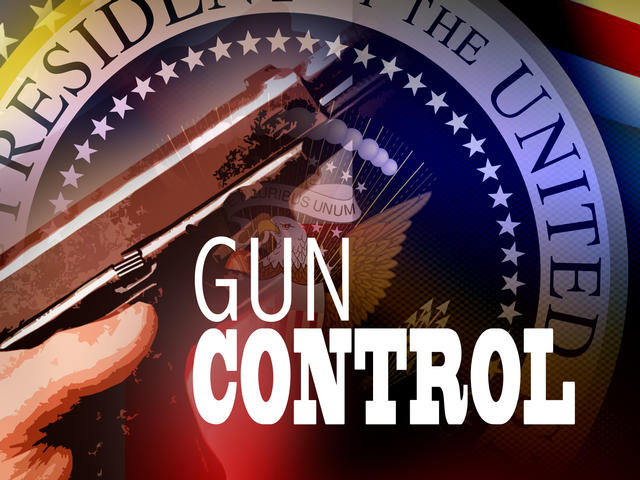In 2010, the US Supreme Court overturned a Chicago gun ban and declared in McDonald v. Chicago that the 2nd Amendment guarantees an individual right to bear arms, and that this guarantee is binding on federal, state, and local governments. The Supreme Court said that it applied to the states’ gun control efforts because of the 14th Amendment due process clause, which states:
“No State shall make or enforce any law which shall abridge the privileges or immunities of citizens of the United States; nor shall any State deprive any person of life, liberty, or property, without due process of law…”

AP photo
Does this mean that the government cannot regulate firearms? No. What it means is that every citizen has an individual right to bear arms, and they cannot be denied that right without due process of law. The Chicago gun ban was struck down because it was a blanket prohibition that applied to nearly everyone without any due process. General prohibitions of firearms are unconstitutional; reasonable regulation is not.
My home state of Tennessee requires a handgun permit to carry a handgun in public. To receive such a permit, you must be fingerprinted and take a handgun safety class. Then the Dept of Safety investigates to see if you are a convicted felon, convicted of domestic violence, targeted with an order of protection, addicted to drugs or alcohol, or mentally ill. If you are not disqualified by these criteria, then the state must issue you a permit. If you are disqualified, then you are denied the right to carry a handgun, by due process of law. Such shall-issue laws are a constitutional way to control the carrying of firearms in public. They aren’t arbitrary bans that attack the constitutional rights of everyone.
When you go to a gun store and try to purchase a gun, you have to go through the National Instant Criminal Background Check System (NICS). The firearms dealer has to contact the FBI to check the buyer’s eligibility. The dealer gets a quick answer, and if the person passes then they are sold the gun. This is a reasonable gun control regulation in keeping with the Constitution.
The background check requirement does not apply to private gun sales in most states. People can sell firearms to private parties without background checks or any paperwork. This is called the “gun show loophole” by gun control advocates. Closing this loophole by requiring all firearm sales to include an instant background check just like retail gun sales would be a reasonable gun control regulation and would make it more difficult for mentally unstable people and criminals to purchase a gun.While such legislation would not have prevented the Newtown shooting at Sandy Hook Elementary, it could reduce the likelihood of similar incidents in the future.
But when people speak of gun control, they often mean prohibiting firearms for everyone in violation of our constitutional right not to be deprived of life, liberty, or property, without due process of law. Gun control is constitutional, when it actually is “control” instead of an arbitrary ban. Reasonable regulations that restrict access to firearms for people with criminal records or mental illness are constitutional and are an important way to protect the public.
Related Articles

Be the first to comment on "Constitutional Gun Control: It is Possible"